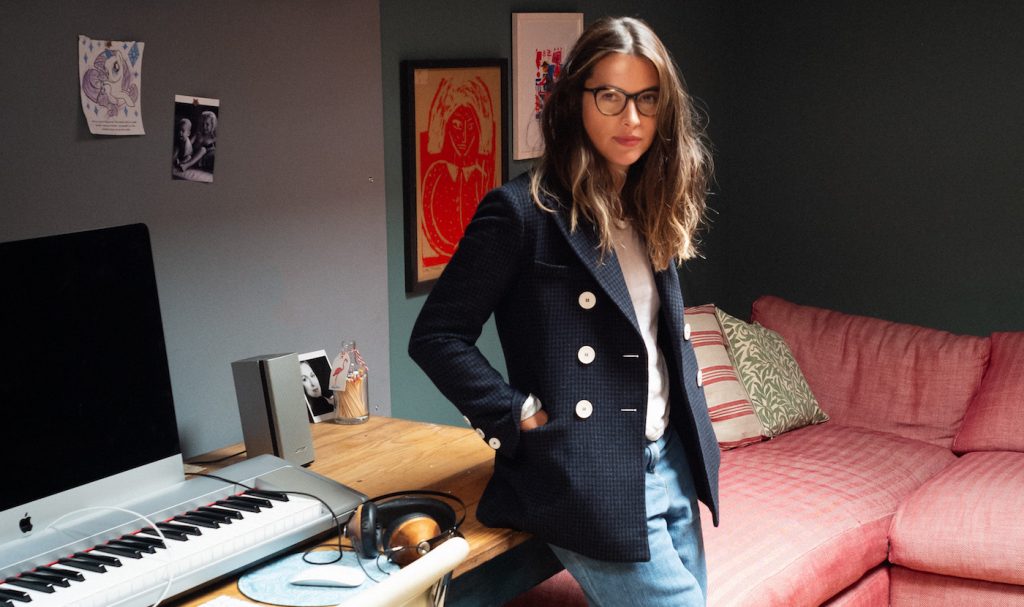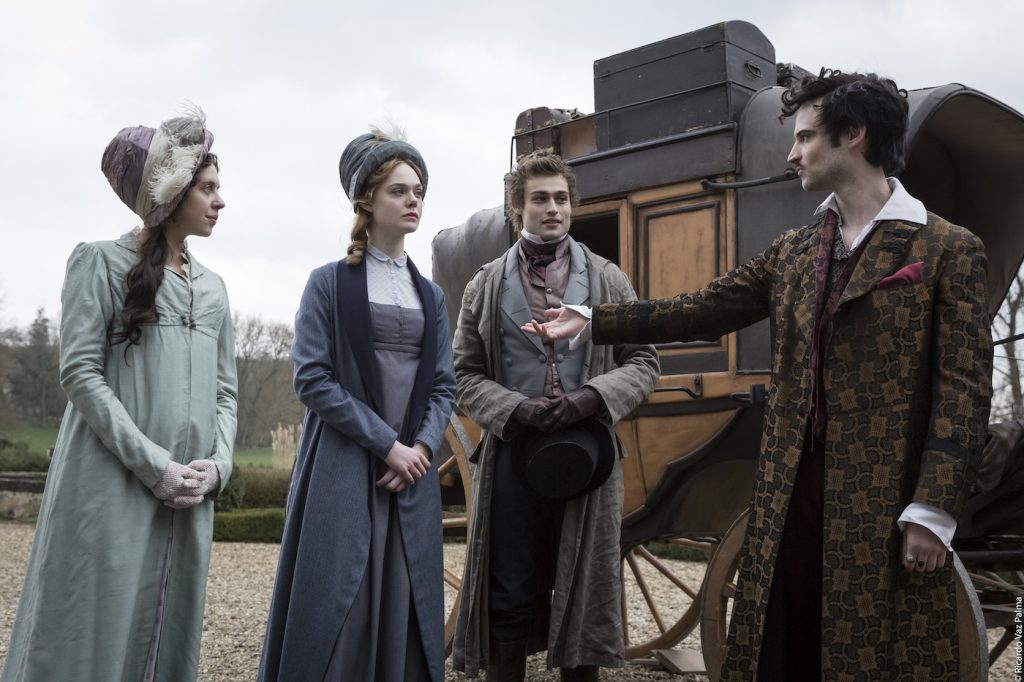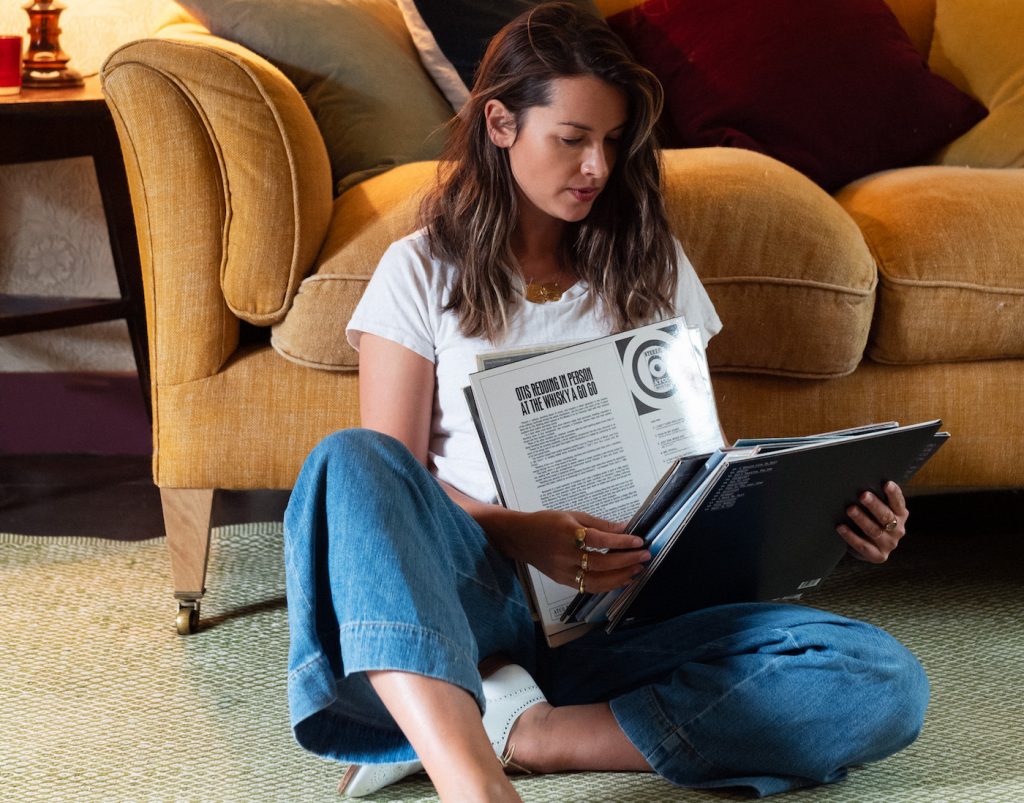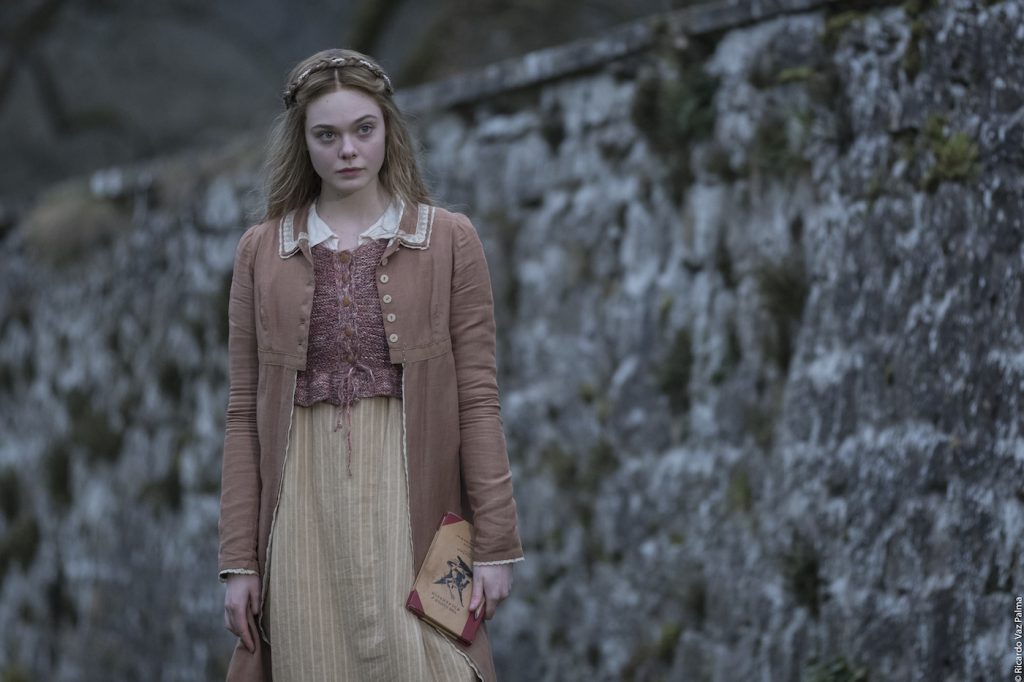Actress-Turned-Composer Amelia Warner Helps Re-Imagine Frankenstein Origin Story in Mary Shelley
It was a dark and stormy night two centuries ago when 18-year old Mary Shelley, staying at Lord Byron’s estate in Geneva, Switzerland, responded to her host’s scary story contest by writing “Frankenstein.” Then came the hard part: persuading someone in London’s male-dominated book industry to publish the story under her own name. Starring Elle Fanning, Mary Shelley, which recently opened wide, tracks the heroine’s love affair with poet Percy Shelley and the crushing disappointments leading up to her creation of the now-classic horror tale. To score the melodramatic twists and turns, director Haifaa-al-Mansour, Saudi Arabia’s first female filmmaker, enlisted British actress-turned-composer Amelia Warner. “I’d read Frankenstein in school and become a bit besotted with it, but I had no idea Mary Shelley was so young when she wrote ‘Frankenstein,'” says Warner. “I also didn’t know she was so progressive in her thinking.”
Al-Mansour, who earned a 2012 BAFTA nomination for Wadjda, took a liking to Warner’s music while shooting Mary Shelley in Ireland and Luxemburg. During post-production, filmmakers met with Warner about scoring the movie. Warner recalls, “They wanted the music to express Mary’s inner world at every moment, that was the main direction. It needed to feel haunting and gothic as the inspiration for this monster grows and grows inside of her. I was also very keen on portraying the intense passion of first love between Mary and Percy Shelley.”
With its picture-postcard settings and exquisitely crafted costumes from Caroline Koener, Mary Shelley adheres to period drama conventions in everything but the music. Warner infused the score with 21st century edge by bringing synthesizers into the mix. She says, “The temp music included contemporary tracks that worked surprisingly well, so I kept modern sounds, especially for the galvanization scenes and the Geneva section. I pushed the synths and the drones to give them a warped, otherworldly feel.”
Building on the synthesizer tracks, nearly 100 musicians gathered in a Dublin recording studio to play the score live. “The score had to feel really big because the film is such a sweeping drama,” Warner says. “We had a large string section, a beautiful harp part and a choir with an incredible soprano and a counter tenor whose voices are pretty much the backbone of the score.”

Mary Shelley initially focuses on her whirlwind romance with tempestuous romantic poet Percy Shelly, but darkens when the title character loses her baby and witnesses the public “galvanization” of a dead frog seemingly re-animated with electric shocks. Warner intensified the music in the third act to underscore Mary’s anguished creation of the Frankenstein legend. “I recorded breathing and a heartbeat sound to make it feel visceral, as if we are going through these experiences with Mary,” Warner says. “The vocals were discordant and slightly off pitch and I also layered up a lot of synths to make it feel like the music was coming in peaks and troughs, like waves.”

With its dense array of elements, Mary Shelley‘s score reflects a practiced hand, yet Warner only began writing music for feature films in 2016 when she scored Mum’s List. She played piano as a child but postponed her music career to act in such movies as Aeon Flux and Quills. “My parents were actors so it was sort of the family business,” Warner explains. “Unfortunately my least favorite bit of being in the film business happened in between when the director shouted ‘action’ and ‘cut.’ It took me a long time to get the confidence to say out loud that I absolutely loved music but when I had a baby, something about that made me braver and I started releasing the kind of music I really wanted to make.”
Warner lives in the countryside outside of London with actor husband Jamie Dornan and their two daughters. “I have a studio hidden away at the back of our garage,” she notes. My children still haven’t found it which means I get to work in peace!” It also means Warner gets to create most of her music remotely from the comfort of home. “I only had two face to face meetings on Mary Shelley,” she says. “For me, it’s a brilliant way to work.”

As a tribute to a headstrong proto-feminist fighting for recognition – – the original publisher of “Frankenstein” insisted on an anonymous byline – – Mary Shelley lands in theaters during a particularly ripe time for movies by and about singular women. Warner says, “I can’t wait for my girls to watch Mary Shelley so they can see what women are capable of. It’s a thrill to know they’re growing up in a time when their voices will be heard.”

Featured image: Amelia Warner. Photo by Clement Lauchard



